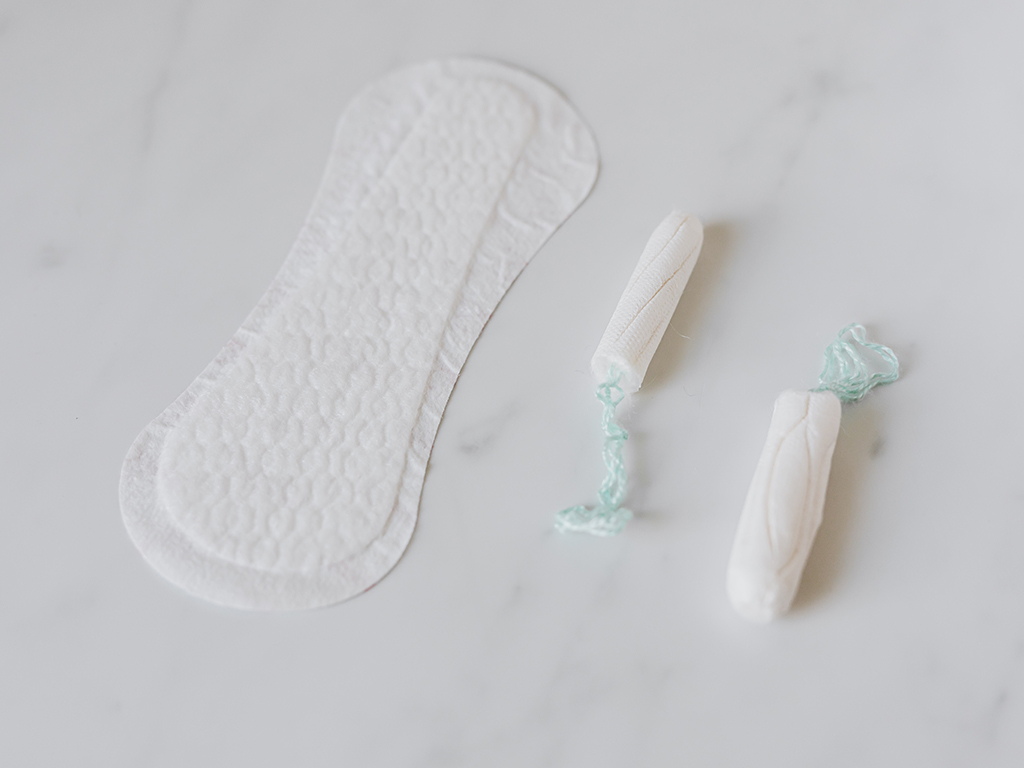by Margaret E. Johnson, Marcy L. Karin, and Elizabeth B. Cooper
Distrust of people who menstruate needs to stop. For too long, menstruation has been an after-thought or something to be ignored and hidden. This long-standing taboo against those who bleed monthly results in cruel policies and practices. For example, decisionmakers have allegedly fired employees who leak during their cycle. People who are incarcerated have worn blood-stained clothing because they do not have free access to appropriate menstrual products. Students have been denied necessary bathroom breaks or have had to use code names for menstrual products. And it means 30+ states continue to charge an unconstitutional sales tax despite a nationwide campaign against taxing menstrual products.
The distrust of menstruators is front and center with the July bar exams that take place next week, and those that follow. The multi-day bar exam is the legal licensing requirement needed to practice law and is understandably extremely stressful. Imagine adding to this pressure a ban on bringing in one’s own menstrual products or uncertainty about the ability to do so because a state does not expressly or publicly disclose if they are permitted. Outraged over state bars’ menstrual products restrictions, people started exchanging the information on Twitter.
In response, on July 20, 2020, we submitted a letter to the National Conference of Bar Examiners (NCBE) and to specific state bar examiners requesting that there be public and express policies permitting examinees to bring in their own menstrual products to bar exams. Within 24 hours, over 2800 members of the legal community joined this call for fundamental fairness. The NCBE has since told state bar examiners that candidates should be permitted to bring their own menstrual products into the bar exam testing room. And states are starting to respond: Texas and Idaho are among those that have publicly clarified that test takers can bring in their own products. But, this shouldn’t be an issue at all.
Some states seek to ameliorate the situation by providing menstrual products in women’s restrooms. Others allow examinees to bring in their own products, but they are required to leave them with restroom proctors. The prohibition against applicants’ bringing their own products, or requiring them to use up precious time while reclaiming them, results in test-taking conditions for menstruators that are more onerous and stressful than for other people.
Many people taking bar exams in the coming months—women, transgender men, and nonbinary persons—will be menstruating. It is critical that they have access to their own menstrual products. Menstrual products are not “one size fits all.” Persons who menstruate require different sizes and levels of absorbency in their products to best fit their body and menstrual flow. This is why products come in different sizes and absorbency levels. Use of the wrong size can lead to everything from pain and discomfort to toxic shock syndrome (if too large) and time-consuming, disruptive leaks (if too small). Further, some individuals require hypoallergenic products to protect against allergic reactions. If not provided, applicants may experience vaginal itching or other problems caused by inserting allergen-containing tampons or pads inside or adjacent to their bodies.
Further, transgender men and nonbinary persons may menstruate and may use the male restrooms or all-gender restrooms (if available). If menstrual products are available only in women’s restrooms, and these examinees are not permitted to bring their own products, they will have absolutely no access to these necessities during the exam.
Concerns about test security—that someone might write information needed for the exam on these products—is ill-founded. It seems impossible that one could write anything meaningful on a product or its wrapping for a two-day intensive test that requires not only rule recall, but also application and analysis of legal rules to facts.
These policies also unnecessarily raise suspicion only about persons who menstruate. Other items deemed essential—such as laptops—are permitted in many jurisdictions. Access to one’s own menstrual products is just as essential. Absent any indication that menstrual products have been used to compromise the integrity of the bar examination, bar examiners targeting only people who menstruate sends a strong—and problematic—message that people who menstruate are untrustworthy.
These illogical, shaming policies have the potential to significantly harm those test takers who may be menstruating when taking the bar exam. Unencumbered access to personal menstrual products during in-person licensing exams is critical for persons who menstruate. State bar policies must be revised to expressly and publicly permit examinees to bring in their own menstrual products. No one should have to risk admission to the bar because they have their period. Menstruators must be trusted, and the taboo must end.
Margaret E. Johnson is a Professor of Law at the University of Baltimore School of Law, visiting at American University Washington College of Law; Marcy L. Karin is the Jack and Lovell Olender Professor of Law at the University of the District of Columbia David A. Clarke School of Law; Elizabeth B. Cooper is a Professor of Law at Fordham University School of Law. They are scholars and advocates in the area of menstrual justice law and policy. They may be reached at MPandTheBar@gmail.com.

